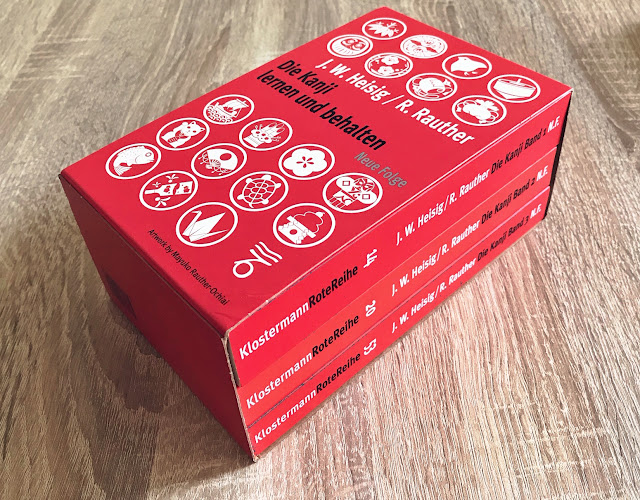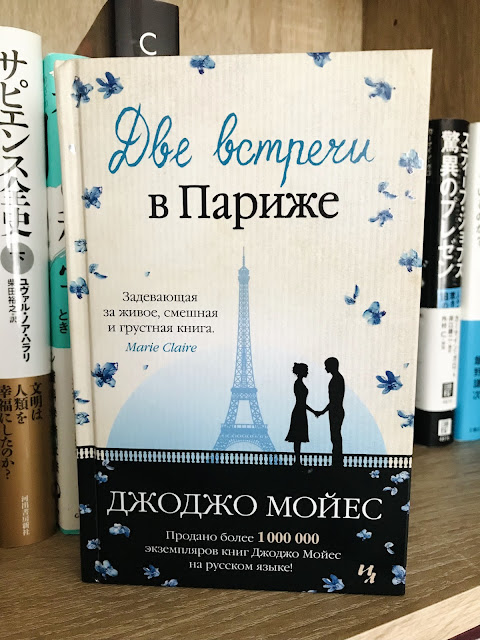The Joy of Reading
Many language learners will probably agree, that reading is important. Reading helps to expand your vocabulary and familiarize yourself with sentence patterns and much more. That's why language learners are encouraged to read as much as possible.
But when it comes to the question what kind of content one should read, everybody has his own opinion. Some people advise to read simple texts first (like graded readers, children's books, ... ). Others prefer to read whatever they like, no matter how difficult it is (like novels, mangas, news, video games, ... ).
Personally, I try to mix content of different levels of difficulty. I like to read the News Web Easy articles (simplified versions of news articles from NHK) but I also like the interesting articles about science and history from National Geographic, which is much much more difficult to read.
But when it comes to the question what kind of content one should read, everybody has his own opinion. Some people advise to read simple texts first (like graded readers, children's books, ... ). Others prefer to read whatever they like, no matter how difficult it is (like novels, mangas, news, video games, ... ).
Personally, I try to mix content of different levels of difficulty. I like to read the News Web Easy articles (simplified versions of news articles from NHK) but I also like the interesting articles about science and history from National Geographic, which is much much more difficult to read.
I love video games like Ace Attorney, for example. This game is very text heavy and — in contrast to other games — you have to understand nearly all of what you read in order to play it through. I am able to play it in Japanese and French (+ dictionary), because I understand great parts of it even though I also have to look up certain words.
But I would never try to play it in Russian (even if there would be a russian version), because I would have to look up nearly every word. This kind of content is far too difficult for a beginner. It would be nonsense to struggle my way through this game at this level, because it would be no fun at all.
I prefer content on topics I like and a difficulty level I can cope with. But I have seen some language learners who think that they should read certain kinds of content, even if they don't enjoy it that much or if it's too difficult for them. Some of them forced themselves to read novels instead of graded readers or children's books not because they really liked the content and wanted to read it but because they thought they should read something more "advanced". That they should read some "real books". There's no such thing as "real books" or "not real books". How could content aimed at natives not be "real"?
Maybe they compare themselves to other language learners and are ashamed of reading graded readers or children's books (Although I think that — depending on what kind of children's book you read — it's not always as easy as you may think. The language used in children's books may not be as complex as in a novel, but you can nevertheless learn a lot of words and expressions. Without long and complicated sentences it's more pleasantly to read. Plus, the story can be appealing to adults, too). Maybe they want to impress others by reading a difficult book. Or maybe they think that they will improve faster by skipping easier content.
But whatever the reason may be, I believe that any content is okay as long as you really like it. If you like gardening and read a book about this topic in your target language, that's great! If you like heartwarming stories and read children's books, that's great! If you like magazines aimed at women, that's also great!
I prefer content on topics I like and a difficulty level I can cope with. But I have seen some language learners who think that they should read certain kinds of content, even if they don't enjoy it that much or if it's too difficult for them. Some of them forced themselves to read novels instead of graded readers or children's books not because they really liked the content and wanted to read it but because they thought they should read something more "advanced". That they should read some "real books". There's no such thing as "real books" or "not real books". How could content aimed at natives not be "real"?
Maybe they compare themselves to other language learners and are ashamed of reading graded readers or children's books (Although I think that — depending on what kind of children's book you read — it's not always as easy as you may think. The language used in children's books may not be as complex as in a novel, but you can nevertheless learn a lot of words and expressions. Without long and complicated sentences it's more pleasantly to read. Plus, the story can be appealing to adults, too). Maybe they want to impress others by reading a difficult book. Or maybe they think that they will improve faster by skipping easier content.
But whatever the reason may be, I believe that any content is okay as long as you really like it. If you like gardening and read a book about this topic in your target language, that's great! If you like heartwarming stories and read children's books, that's great! If you like magazines aimed at women, that's also great!
The amount of text per book and the complexity of the used language may vary depending on the kind of content, of course. There's a difference between "I have read 50 manga" and "I have read 50 novels", obviously. You may not learn as much from a collection of poems as from a novel with 300 pages.
But that's not the point! I believe that it's more important to really like what you read. If you like a book about gardening, for example, you'll probably read more books about this topic. You will come across certain words and expressions more often which will lead to a expansion of your vocabulary. And even if you read children's books or poetry collections, where the topic varies, if you really like the content you will read more and more and this will definitely help you to improve. If you enjoy what you are reading, you will also remember it better. I think it's terrible to kill the joy of reading through thoughts like "I should read real books".
Maybe you will not improve that fast by reading women's magazines most of the time, but if you enjoy these kinds of magazines you will definitely spend your time pleasantly. You will enjoy reading in your target language and you will have a much more positive feeling towards your target language — isn't that desirable?
Improvement is great, of course. But, to me, enjoying what I do is more important. When I enjoy the content, I almost even forget that it's written in another language. I just want to know, what the protagonist will do next or what interesting things scientists found out about the planet Mars.
Reading
something easy gives me a positive feeling. Being able to read at least
a certain kind of content quite fluently feels great and gives an
impression what it feels like to be really fluent in the language in the
future. It proves that I can do it and this is very motivating!
Content is one thing. But in order to be able to really enjoy
something, it's also important that it's not too difficult. A little
challenge from time to time is okay. But if I feel that I need to look
up too much I rather choose something easier (see my example with Ace
Attorney in Russian).
Read whatever you like in your target language as long as you enjoy it!



Comments
Post a Comment